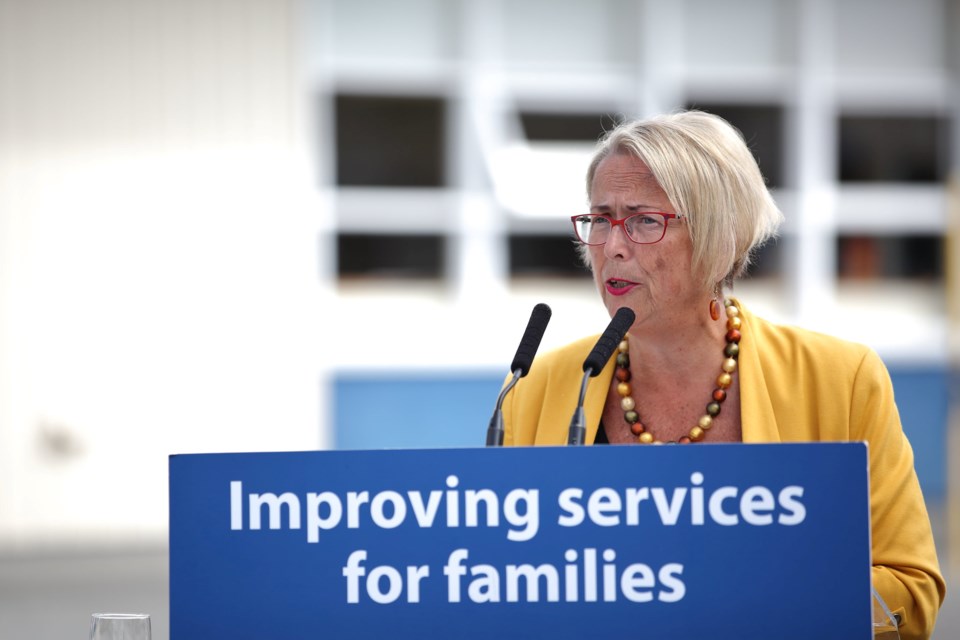A new mental health and addictions initiative will help combat the stigma and shame that students in Richmond may feel when reaching out for help, and ensure they get that help immediately.
“I’ve met with people who work in the field of mental health and substance abuse in Richmond, as I have across the province, and stigma is still a very huge barrier in reaching out for help,” said Judy Darcy, B.C.’s minister of mental health and addictions, speaking from Thomas Kidd elementary Wednesday.
Richmond School District is one of five districts across the province chosen to have new “integrated child and youth (ICY) teams”, which will work to fill gaps in the current mental health and substance use care system for anyone aged 18 or younger.
Darcy said the teams will work with the school district to make sure that youth who need mental health or addictions help get it immediately.
“The fact that there is actually a team that will be part and parcel of the school district and the community, I think will be an important way of bringing down the walls of silence and people feeling less shame and stigma about reaching out for mental health support,” she said.
Other districts included in Wednesday’s announcement are Coast Mountains and Okanagan-Similkameen. The three districts joined the Comox Valley and Maple Ridge-Pitt Meadows districts which received funding for the ICY teams in July 2019.
Districts were chosen based on an assessment of existing child and youth supports in the communities, the readiness of the school districts and the needs of the students, said Darcy, joined Wednesday by school board chair Ken Hamaguchi and Karen Barclay, director of mental health and substance abuse for Vancouver Coastal Health in Richmond.
“For too long, families have had to struggle to get the services that they need for their children,” said Darcy. “They’ve often had to knock on one door after another, after another, at a really critical time when help is urgently needed and when every day can matter.”
Barclay echoed Darcy's statement, saying that despite a “variety of excellent health care supports” in Richmond, often families have been waiting “far too long” and issues have “grown in complexity” by the time they are able to access care.
Darcy said the teams will remove those roadblocks and deliver better, “seamless,” and more timely care. The teams will take an integrated, multidisciplinary approach and emphasize culturally-safe practices that reflect the students the districts.
Teams could include, for example, school counselors, youth workers, mental health or primary care clinicians, and elders. It will be determined in each school district what resources are already available and how they need to be supplemented with the ICY teams.
“There is no one size fits all. The composition of the teams will really vary according to the needs of a particular community and school district,” Darcy said.
She added that it’s estimated that 70 per cent of mental health and substance use issues have their onset during childhood and adolescence.
Youth would be able to access the supports through self-referral, schools, primary care, or community organizations, among others.
It’s hoped that the teams will be up and running within a year, said Darcy, COVID-permitting. The first step following the announcement is to develop a detailed plan for how the teams will be implemented in the school districts, as well as identify and hire professionals to be part of the teams.
The plan is to eventually have the ICY teams in every school district in the province.
Funding for the teams is part of the B.C. government’s $74-million investment over three years, announced in the 2019 budget, to support mental health initiatives for children and youth.



